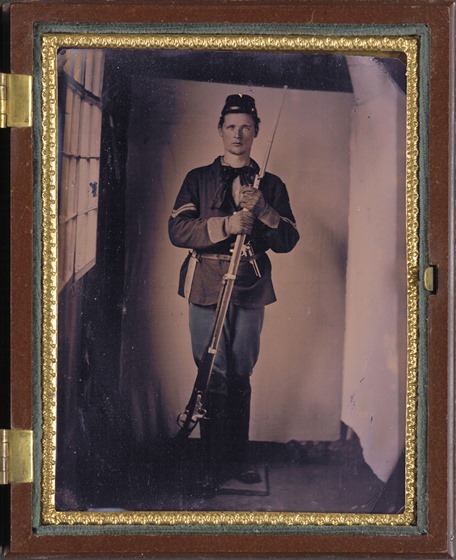Abby Howland Woolsey to Harriet Gilman.
Fishkill, July, 1863.
It took so long for letters to come from Gettysburg, and Mother and Georgy had so little time to write, that we didn’t hear often. They have come themselves at last; arrived Tuesday, midnight. . . . Georgy came up here this noon, and we have been sitting together talking over all the strange scenes in those tents by the railroad, where 16,000 men have been fed and comforted in the last three weeks. Just imagine Mother in a straw flat and heavy Gettysburg boots, standing cooking soup for 200 men at a time, and distributing it in tin cups; or giving clean shirts to ragged rebels; or sitting on a pile of grocer’s boxes, under the shadow of a string of codfish, scribbling her notes to us.
She has many a memento of that strange battle—one, of a rebel lieutenant who died in her care; and a score of palmetto buttons from rebel coats—dirty but grateful, poor wretches; etc. . . . They say that the women of Gettysburg have done all they can, given the wounded all that the rebels had not taken, and have boarded the Sanitary and Christian Commission for nothing. At one house, where Mother and G. got their dinner one day, the woman could not be induced to take money. “No, ma’am,” she said, “I would not wish to have that sin on my soul when this war is over.”
We may go to Brattleboro for a month. But if Charley holds out the hope of his coming home, it won’t be worth while to go away. . . . We have not heard anything recently from “the army,”—I mean our modest portion of it in the form of Charley. He and all of them I am sure must be mortified at this escape of Lee at Gettysburg, scot free. He lost many men, but so did we. Pennsylvania is safe from “the invader”; but, dear me, our army has begun the hateful scramble all over Virginia again. . . .
Charley wrote that “Halleck urged forced marches after the retreating rebels and an immediate attack, as he had positive information that Lee was rapidly crossing the Potomac.” Charley adds, “but we have had nothing but forced marches since we left the Rappahannock, and we know that Lee isn’t crossing and cannot cross rapidly.” [He did, though.]












